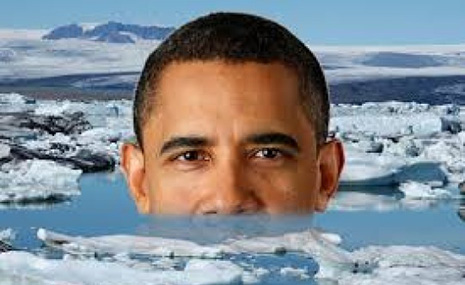That was a somewhat politically risky response given the flak Obama took for his no-show at last month’s Paris unity march. It drew the predictable response from Mike Huckabee, who quipped on Fox News, “I assure you that a beheading is much worse than a sunburn.” And it also led to a prolonged back-and-forth between White House press secretary Josh Earnest and ABC News’ Jonathan Karl at Tuesday’s briefing, during which Earnest fleshed out Obama’s position like so: "The point that the president is making is that there are many more people on an annual basis who have to confront the impact, the direct impact on their lives of climate change or on the spread of a disease than on terrorism.”
Which leads me to two points, the first of which the New Republic’s Rebecca Leber makes for me—the numbers back up Obama’s general take. A 2012 DARA International report, commissioned by 20 governments, estimated that climate change causes an average of 400,000 deaths each year—a total that could grow to more than 600,000 by 2030. “Inaction on climate change,” the report concludes, “can be considered a leading global cause of death.” Global warming’s reach grows exponentially larger when you consider more than just fatalities. According to DARA, “250 million people face the pressures of sea-level rise; 30 million people are affected by more extreme weather, especially flooding; 25 million people are affected by permafrost thawing; and 5 million people are pressured by desertification.”
Terrorism doesn’t even begin to approach those numbers. According to the Global Terrorism Index compiled by the Institute for Economics and Peace, there were nearly 18,000 deaths from terrorist attacks in 2013. The report itself concedes that even though terrorism is on the rise, it claims 40 times fewer lives globally than homicide. Only roughly half of terrorist attacks include a fatality, so the true number of those impacted is surely higher, but it’s impossible to imagine the total could approach DARA’s climate figures.
My second point is that we’ve actually heard a version of this public-health sales pitch from Obama before. During this past summer’s rollout of the EPA’s historic climate initiative, the president and his allies went to great lengths to reframe the climate change debate around the health of our children and the elderly, as opposed to the fate of the polar bears and the melting ice caps that have long served as the de facto mascots of the climate movement.
There’s evidence that was a smart move. A 2012 research report from Yale University’s Project on Climate Change Communication found that placing the conversation within a public-health frame was more likely “to elicit emotional reactions consistent with support for climate change mitigation and adaptation” than a traditional environmental frame, or even one focused on national security. More importantly was whom the health pitch spoke to loudest: Americans who to varying degrees haven’t made up their minds about just how pressing a threat man-made climate change is.
Still, it’s not entirely clear if this is a battle the White House wants to have, or just Obama speaking truth off the cuff. Hyping the public-health benefits of addressing climate change is one thing, but the introduction of terrorism into the conversation at least gives the impression that Obama is prioritizing one above the other. The numbers may support doing just that, but it’s unclear if that’s a message Americans are eager to hear. In a Pew Research Center poll last month, global warming came in second from the bottom on a list of Americans’ 23 top policy priorities for 2015. Terrorism, meanwhile, came in first.
More about:
















































